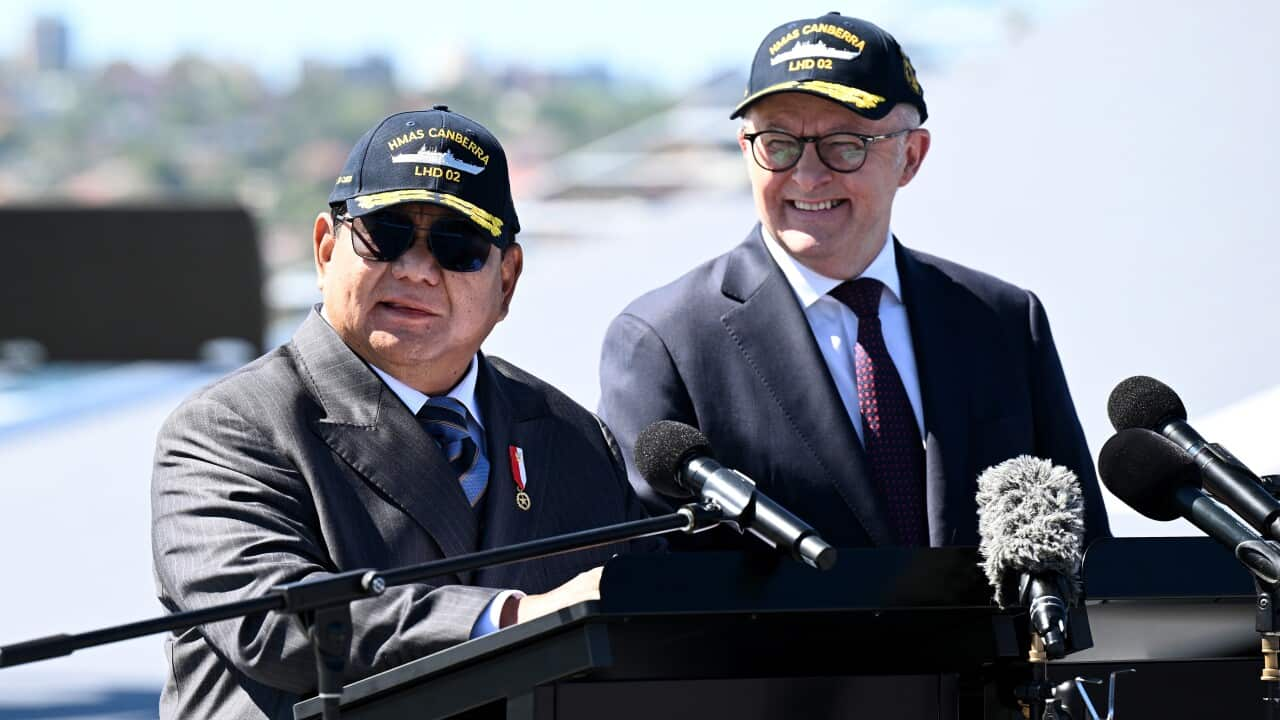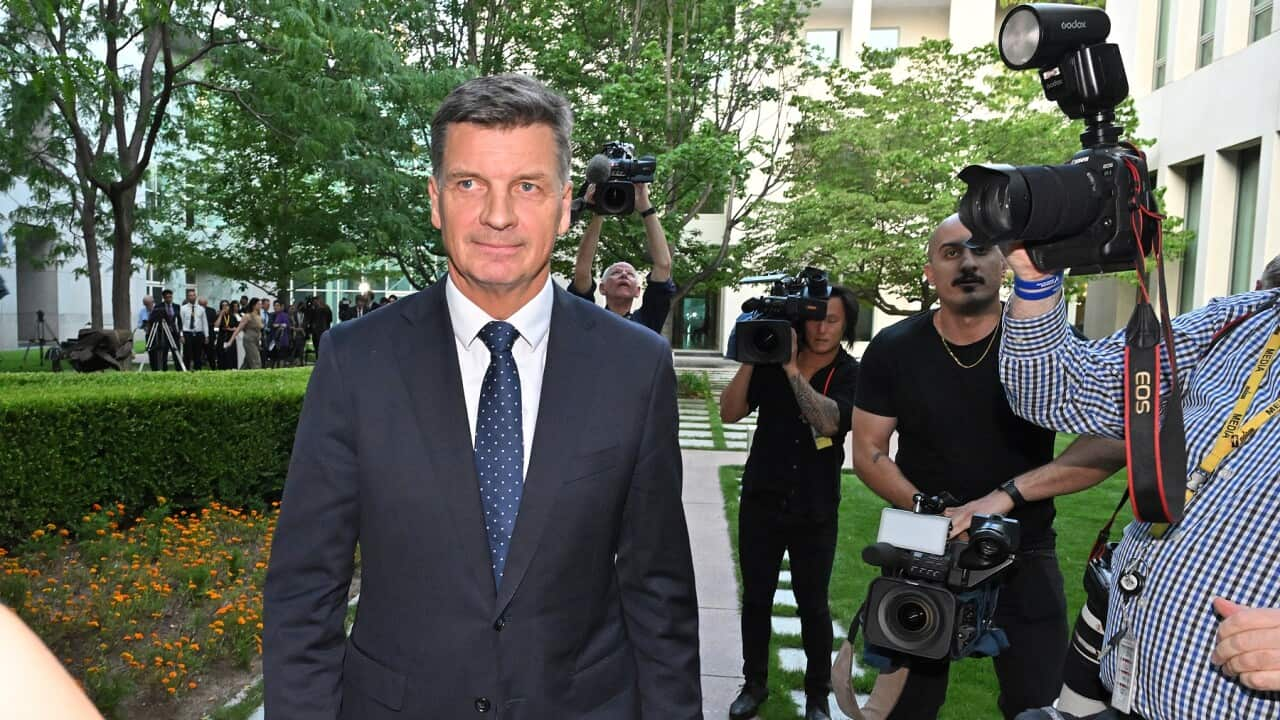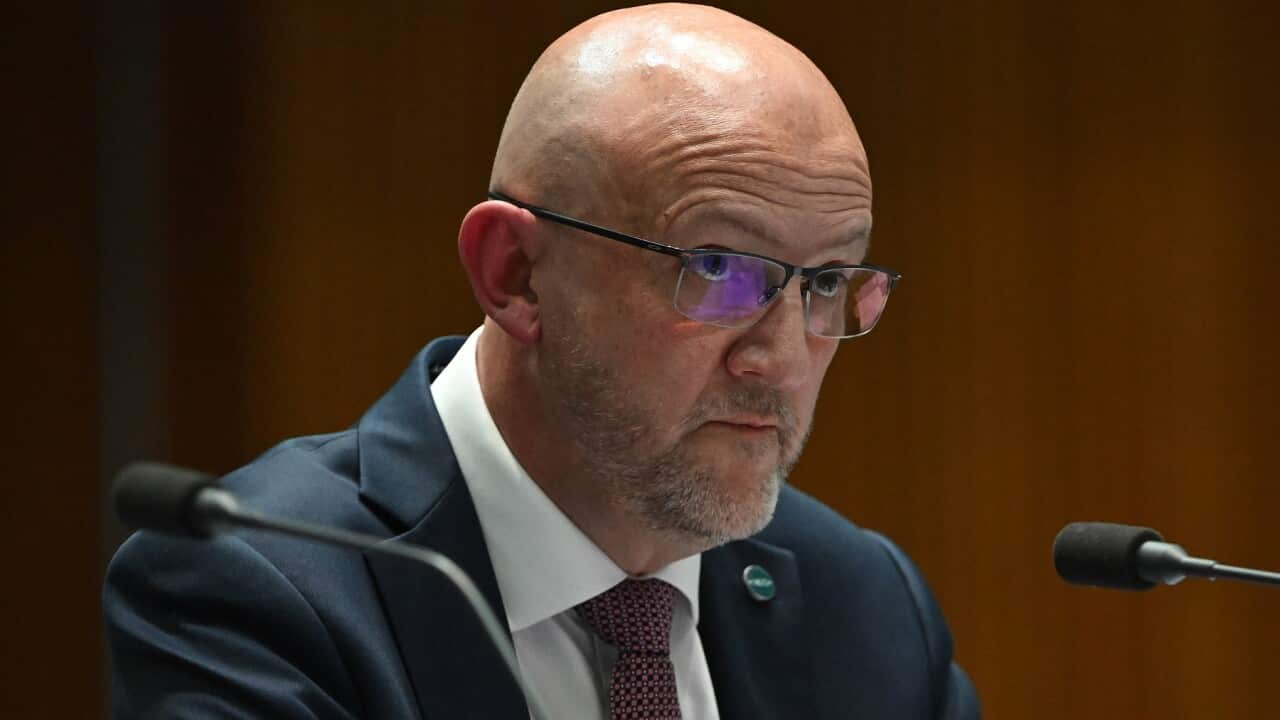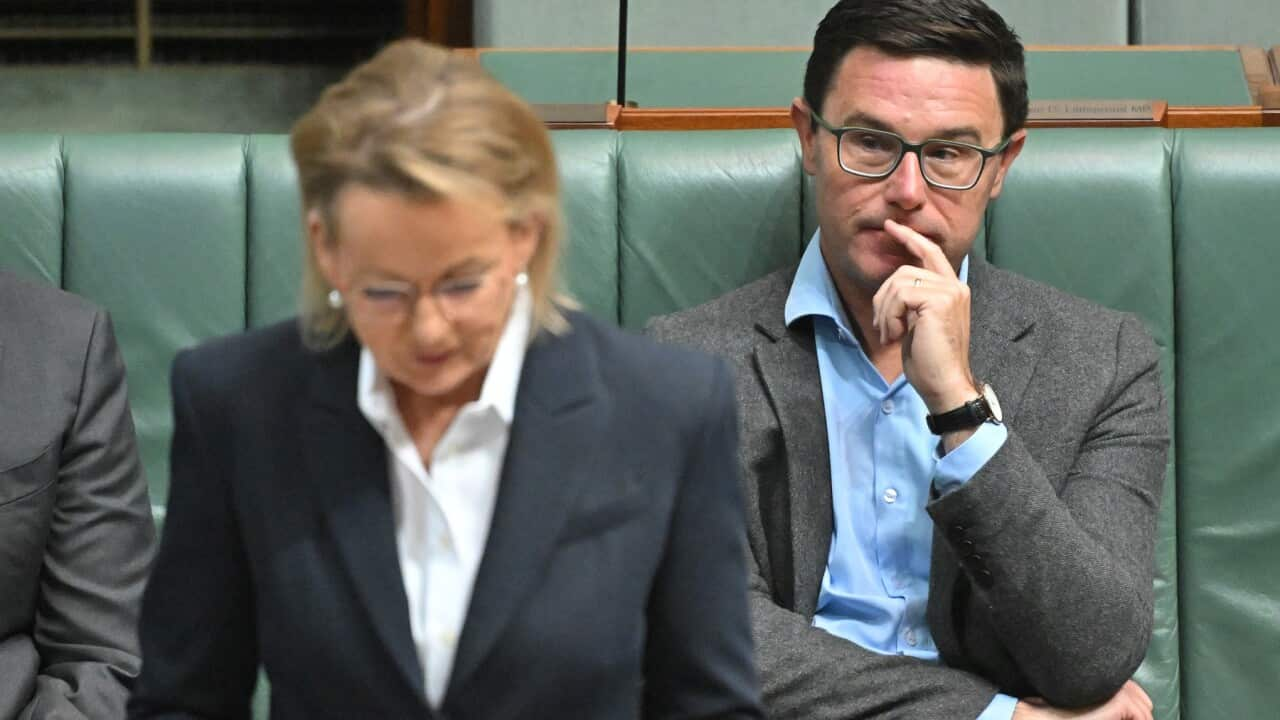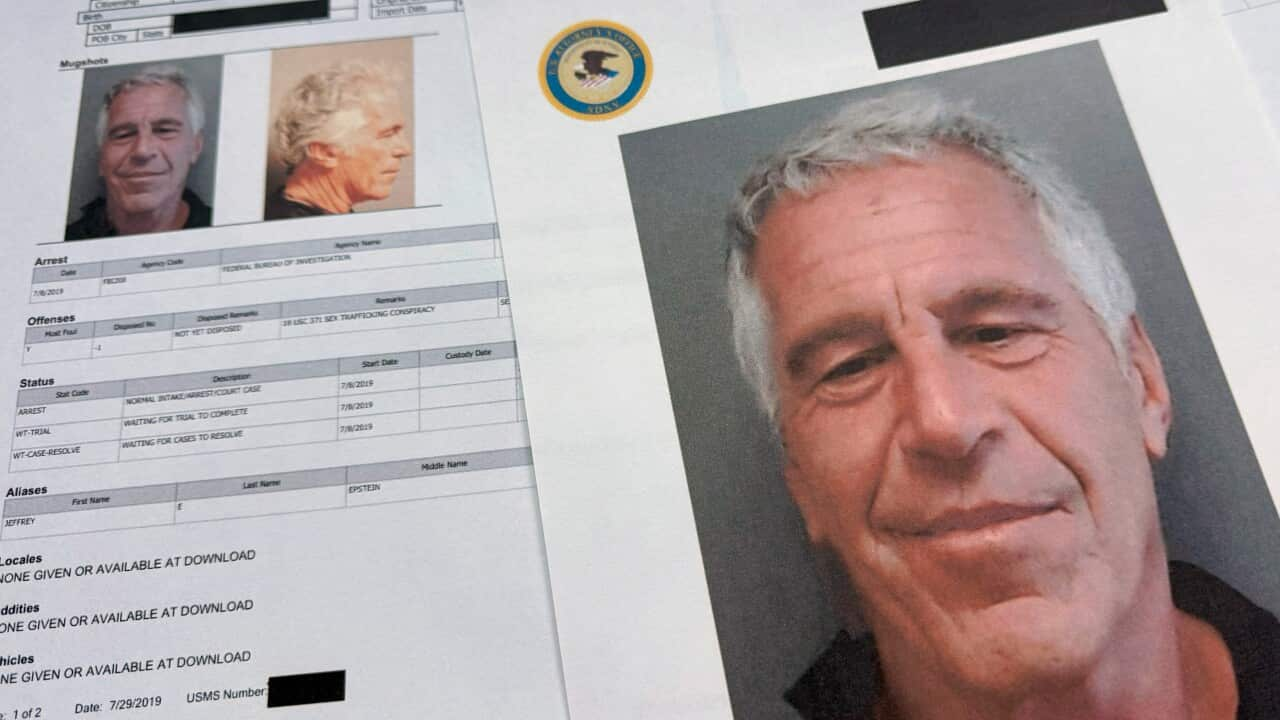Listen to Australian and world news, and follow trending topics with SBS News Podcasts.
TRANSCRIPT:
Australia and Indonesia are entering into a major defence treaty early next year in what Anthony Albanese describes as a historic moment.
Mr Albanese says the treaty signals a new era in the Australia-Indonesia relationship.
"This treaty will commit Australia and Indonesia to consult at a leader and ministerial level on a regular basis on matters of security, to identify and undertake mutually beneficial security activities and if either or both countries security is threatened, to consult and consider what measures may be taken, either individually or jointly, to deal with those threats. This is a watershed moment in the Australia, Indonesia relationship. This treaty represents a major extension of our existing security and defense cooperation."
Indonesian President Prabowo Subianto has expressed similar sentiments.
"We cannot choose our neighbours, especially, especially countries like us. It is our destiny to be direct neighbors, so let us face our destiny with the best of intentions. I believe in the good neighbor policy. Good neighbours are essential. Good neighbors will help each other in times of difficulties. And in the Indonesian culture, we have a saying. When we face an emergency, it is our neighbour that will help us."
The new treaty is based on the landmark security agreement signed by the Keating and Suharto governments 30 years ago, and builds on the 2006 Lombok treaty.
While the Lombok Treaty focused on non-traditional threats like terrorism, the new pact adds a critical strategic element by committing both nations to consult and consider joint measures if either country's security is threatened.
Professor of International Politics Damien Kingsbury says the Austalian defence department has been pushing for this for decades:
"The agreement that's been reached with Indonesia reflects literally decades of the Defence Department wanting to reach such an agreement, but there has been reluctance on the part of the Indonesian military, there was a lack of bust on the part of Indonesian military, particularly following events in East Timor in 99 and it's taken this long to get finally, to get to this point where there is an agreement in place."
However, academic Clinton Fernandes argues that the Lombok treaty made Australia a 'de facto military ally with Indonesia in its undeclared war' against West Papua.
In a 2007 report from the University of Sydney's Centre for Peace and Conflict Studies ((CPACS)) Mr Fernandes warned the treaty could strengthen the Indonesian armed forces.
He argues that this could stifle support in Australia for human rights and self-determination in West Papua.
Mr Kingsbury amplifies this concern.
"It does raise issues around the type of agreement that's been that's been reached and the nature of the Indonesian military itself, which has historically overreport in the rights record."
Since taking control of West Papua in the 1960s, Indonesia has maintained a heavy military presence there.
The Indonesian military has faced consistent allegations of human rights violations and suppression of Papuan self-determination.
Damien Kingsbury says the number of military officials in the Indonesian government is concerning.
"The Indonesian military said that it was going to remove itself from the political process in Indonesia and clean up its human rights record. At the end of the 1990s it has made some progress in that regard, but it stopped short around 2007 and in fact, it's gone backwards. So we do continue to see the Indonesian military senior officers involved in political processes. Most of the political parties have at least one retired general as a political candidate for senior office. And of course, the human rights issues are still of considerable concern in places like West Papua."
He further emphasises this point by highlighting the personal history of Indonesia's incumbent.
"It's worth keeping in mind that Prabowo Subianto is President of Indonesia himself. Is a former general. He has a very questionable human rights background, and was in fact removed from the Indonesian military because of alleged human rights abuses in 1998."
Sam Roggeveen is the Program Director of the Lowy Institute's International Security Program.
He's told the ABC the new treaty echoes the 1995 treaty's key provision requiring consultation and potential joint action on security threats.
He says it signals Australia's intent to view Indonesia's importance on a level comparable to its relationship with the United States - even though there is still room for improvement.
"The problem is that we've never been able to really solidify it beneath that official level. So the economic relationship is rather anemic. Despite the fact that we have a free trade agreement with Indonesia and people to people links are also pretty thin. I mean, there's barely a an Indonesian diaspora in Australia. It's very, very small, despite the fact that Indonesians are in huge numbers elsewhere around the world. So that is, I think, an important bit of balance in the relationship that needs to be worked on. Increasing the economic relationship and the people to people links."
Some Indonesian analysts, however, argue the treaty tests Indonesia's boundaries of non-alignment.
Dinno Prata Raharja, an Indonesian International Relations Analyst, told the ABC the treaty's creation is opaque, concealing details from the Indonesian public, parliament, and even those working within the government.
"There's very little information available that this agreement has been made openly to civil society, and the circle that I know within the Ministry of Foreign Affairs was also not aware of the process going into this agreement."
